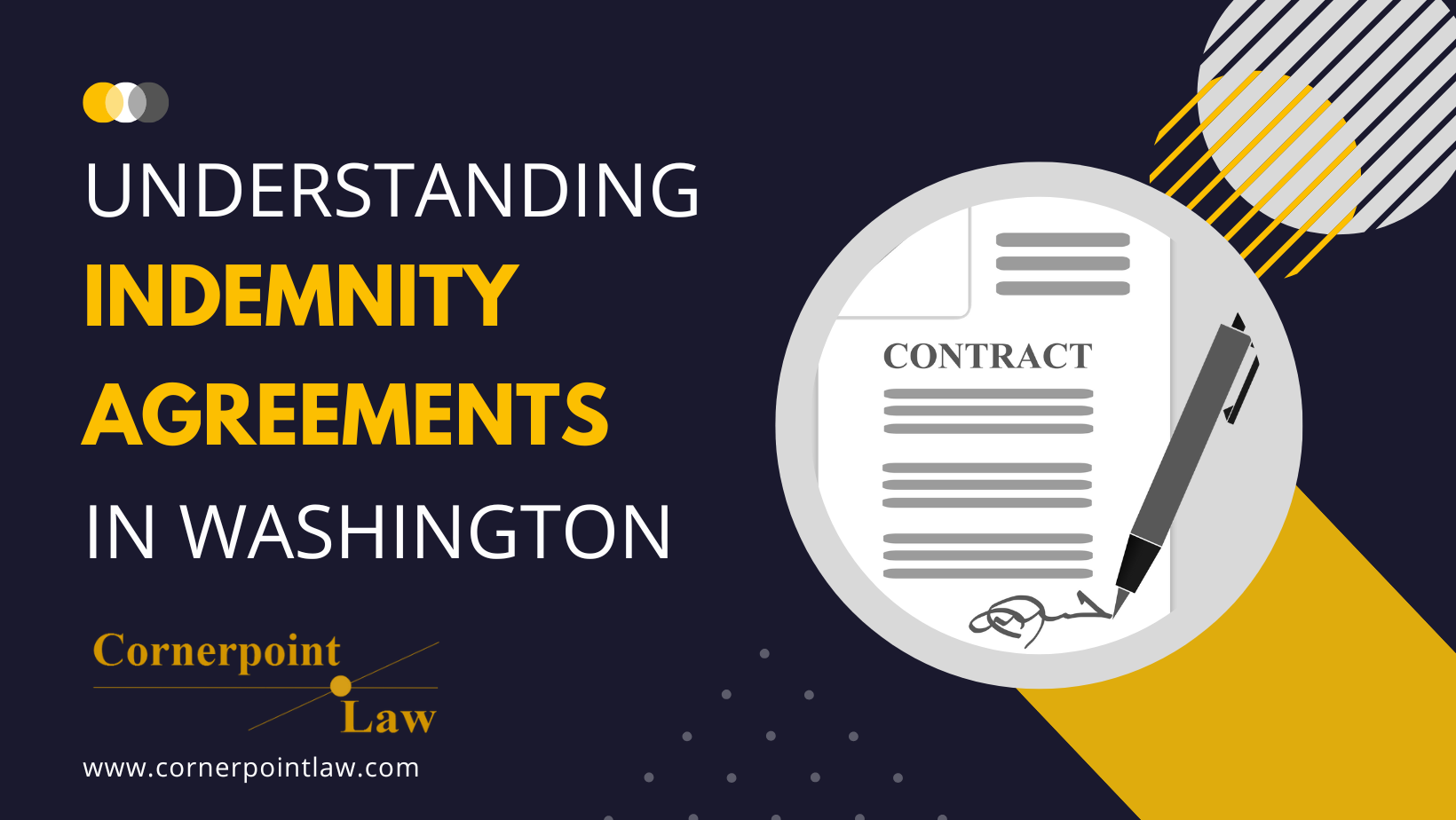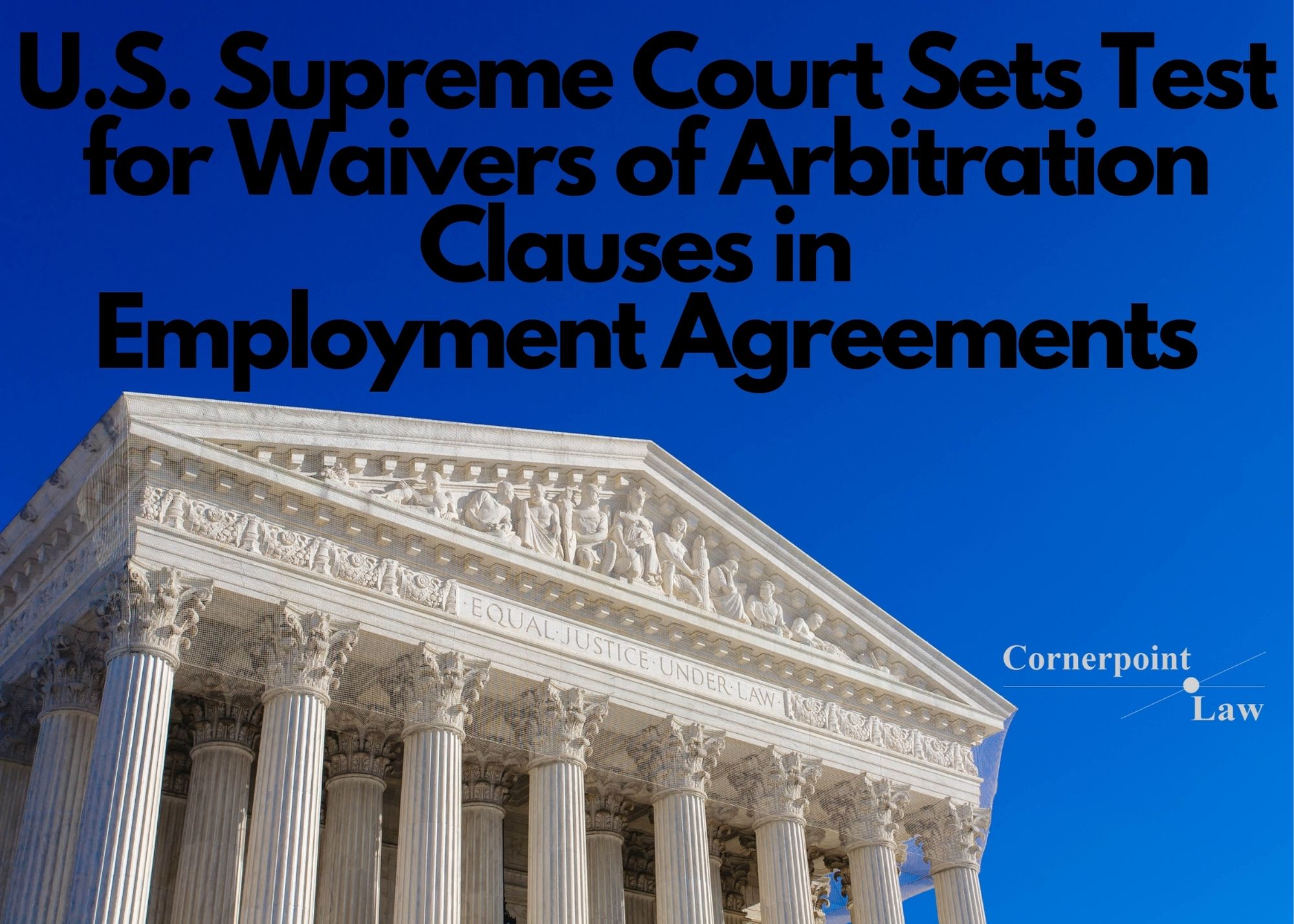Cornerpoint Case Pops: Only Magicians Should Deceive
May 31, 2018
Unauthorized use and/or duplication of blogposts without express and written permission is strictly prohibited. Excerpts and links may be used, provided that full and clear credit is given, and with appropriate and specific direction to the original content.
The author of this post can be reached by phone at 206-693-2718 or by email.
Only Magicians Should Deceive: The Washington Consumer Protection Act
By Stacia Hofmann
Cornerpoint Case Pops are dedicated to summarizing relevant, new cases — and their business and risk management lessons — in bite-size posts.
The Case: State v. The Mandatory Poster Agency, Inc., 199 Wn. App. 506, 398 P.3d 1271,
Washington Court of Appeals, Division I (July 3, 2017)
The Washington Consumer Protection Act, RCW Ch. 19.86, governs virtually everyone doing business in Washington.1 Its purpose is to prevent “restraints of trade, unfair competition and unfair, deceptive, and fraudulent acts or practices.” RCW 19.86.920. Lawsuits over what are and are not prohibited acts or practices are numerous, and Washington appellate courts frequently get the chance to determine the CPA’s application.
The Consumer Protection Act Has Game-Changing Provisions
One such opportunity was in July 2017 in the case of State v. The Mandatory Poster Agency, Inc. The appellate court’s decision discussed several unique attributes of the CPA:
:arrow: A private party can bring a claim for damages, or the Office of the Attorney General can file a civil lawsuit on behalf of the State of Washington. The State of Washington has the ability to fight a CPA claim on behalf of many consumers with legal resources that private parties may lack.
:arrow: The plaintiff must prove, among other things, the defendant’s unfair or deceptive action or practice.2 But, an unfair or deceptive act need not include a business’s false statement. It does not have to be done with the intent to deceive. Rather, if, from the viewpoint of a reasonable consumer, the act or practice has the CAPACITY to deceive a substantial portion of the public, then the act or practice is an unfair or deceptive act.
:arrow: The remedies for violations of the CPA can be quite severe. A court may award a private party triple their actual damages (up to an additional $25,000). When the State brings a lawsuit, a court may assess civil penalties of up to $2,000 per violation against the defendant and order restitution (the paying back) of all money earned from the unfair or deceptive act. Plus, if the defendant loses a CPA claim, the court may order the defendant to pay the plaintiff’s attorneys’ fees (regardless of whether the plaintiff is a private party or the State).
What Did The Mandatory Poster Agency Do That Was Unfair or Deceptive?
 The Mandatory Poster Agency, under the d/b/a Corporate Records Service, sent out over 79,000 solicitations to Washington corporations for the purchase of an “Annual Minutes Records Form.” The Mandatory Poster Agency is a private company, but both the envelope and the solicitation inside resembled a mailing from the government. The solicitation cited certain Washington corporate statutes, and the receiving corporation’s UBI number and date of incorporation (which are public record). Upon paying a $125 fee, The Mandatory Poster Agency would send the corporation a minute book with instructions and forms.
The Mandatory Poster Agency, under the d/b/a Corporate Records Service, sent out over 79,000 solicitations to Washington corporations for the purchase of an “Annual Minutes Records Form.” The Mandatory Poster Agency is a private company, but both the envelope and the solicitation inside resembled a mailing from the government. The solicitation cited certain Washington corporate statutes, and the receiving corporation’s UBI number and date of incorporation (which are public record). Upon paying a $125 fee, The Mandatory Poster Agency would send the corporation a minute book with instructions and forms.
The court determined that the mailing was an unfair or deceptive act because it was likely to mislead a reasonable consumer: “the undisputed format, images, and content do mimic government-related forms and create the net impression that the recipient is obligated to return the form and pay $125” to The Mandatory Poster Agency.
 The Mandatory Poster Agency argued that the solicitation accurately stated certain statutory requirements that corporations must follow. But because a deceptive act need not include false statements, the argument did not provide a defense. Even with an accurate restatement of the law, the solicitations could still lead consumers into believing the mailings were from a government agency and payment to The Mandatory Poster Agency was mandatory to comply with Washington law.
The Mandatory Poster Agency argued that the solicitation accurately stated certain statutory requirements that corporations must follow. But because a deceptive act need not include false statements, the argument did not provide a defense. Even with an accurate restatement of the law, the solicitations could still lead consumers into believing the mailings were from a government agency and payment to The Mandatory Poster Agency was mandatory to comply with Washington law.
The Mandatory Poster Agency also argued that its written disclaimers that it was not a government agency offered it protection from the CPA. But again, the court disagreed. The format and placement of the disclaimers were inadequate and did not “cure the potential for deception.”
In other words, even if the solicitations accurately stated the law, and even considering the disclaimers, the solicitations created the overall impression that they were sent from a state agency and payment was required. The Mandatory Poster Agency is not a state agency. Payment to The Mandatory Poster Agency was not required. The court was able to reach only one conclusion: The Mandatory Poster Agency’s deceptive acts violated the CPA.
What Was the Cost of The Mandatory Poster Agency’s Violation of the Consumer Protection Act?
The solicitations proved to be costly for The Mandatory Poster Agency. The trial court issued a penalty of $793,540 ($10 for each mailing, which the State argued was too little). In addition, The Mandatory Poster Agency had to pay back an additional $362,625 (the amount it made off of the mailings from 2901 paying customers). Finally, The Mandatory Poster Agency was also ordered to pay over $300,000 for the State’s attorneys’ fees. An expensive sales tactic indeed.
Risk Management Lesson
Sometimes the pressure — or desire — to generate revenue results in questionable advertising, marketing, solicitation, sales, and billing methods. Those methods may have the capacity to deceive a reasonable consumer, putting the business at risk for a CPA claim, and the costs of can be substantial. Business owners and management can lower the risk of a CPA claim by paying particular attention to how a customer could view, interpret, or construe sales and billing methods. A reasonable consumer’s perspective — not the business’s good intentions — determines whether an act or practice is deceptive.
Email or call me to see if Cornerpoint can help with your risk management or litigation questions about the CPA. Or, to read another case about the CPA – where the Washington Supreme Court agreed with my former colleague and me that a business did not violate the CPA – click here.
This blog is for informational purposes only and is not guaranteed to be correct, complete, or current. The statements on this blog are not intended to be legal advice, should not be relied upon as legal advice, and do not create an attorney-client relationship. If you have a legal question, have filed or are considering filing a lawsuit, have been sued, or have been charged with a crime, you should consult an attorney. Furthermore, statements within original blogpost articles constitute Stacia Hofmann’s opinion, and should not be construed as the opinion of any other person. Judges and other attorneys may disagree with her opinion, and laws change frequently. Neither Stacia Hofmann nor Cornerpoint Law is responsible for the content of any comments posted by visitors. Responsibility for the content of comments belongs to the commenter alone.
- It doesn’t matter if a business is B2B or B2C – a business can also be a consumer. ↩
- Both the State and a private party must also prove the act or practice occurred in trade or commerce and that the act or practice impacted the public interest. A private party has the additional requirement of showing injury to business or property. ↩




